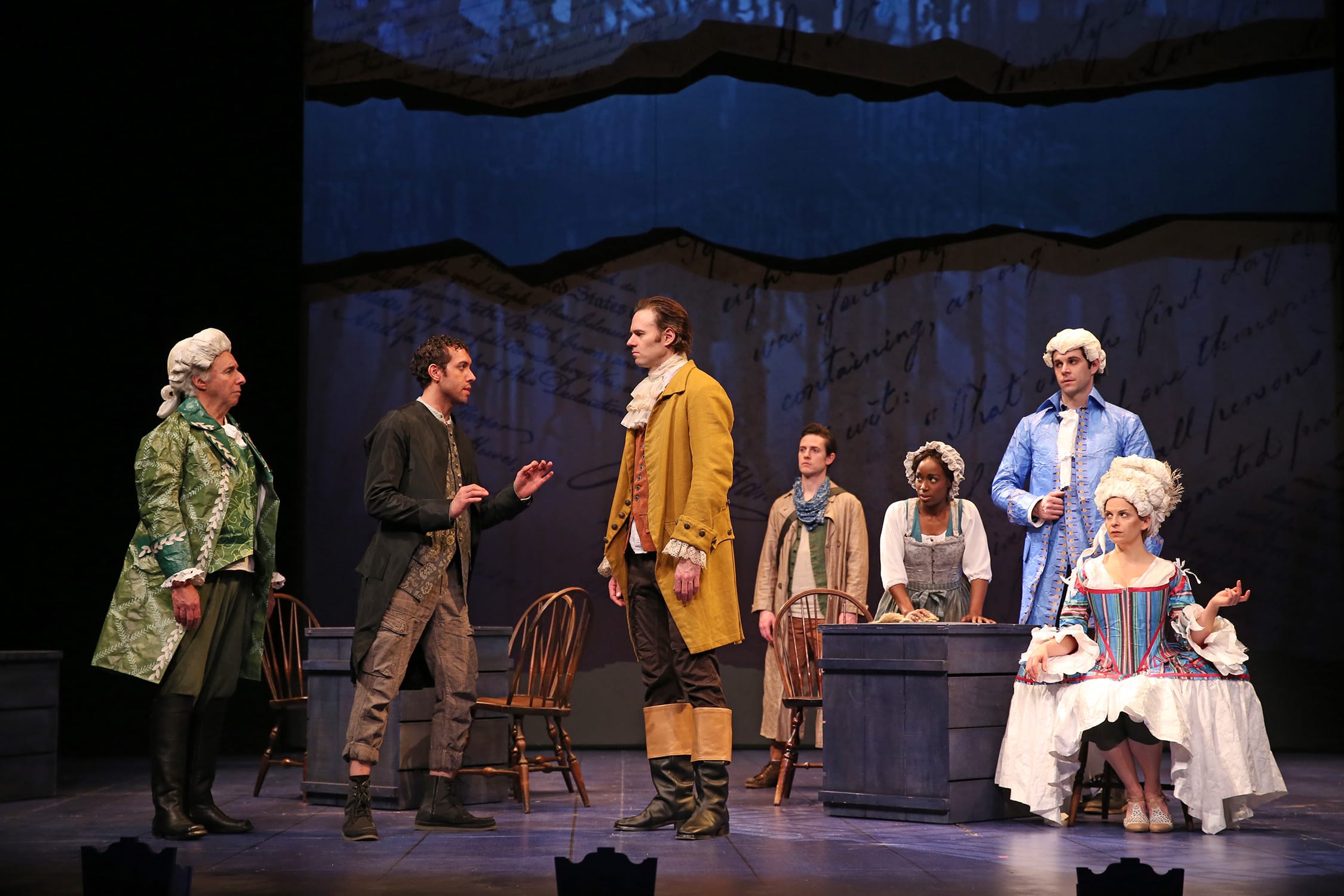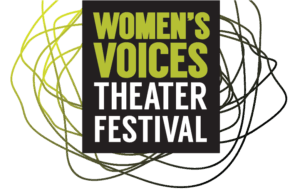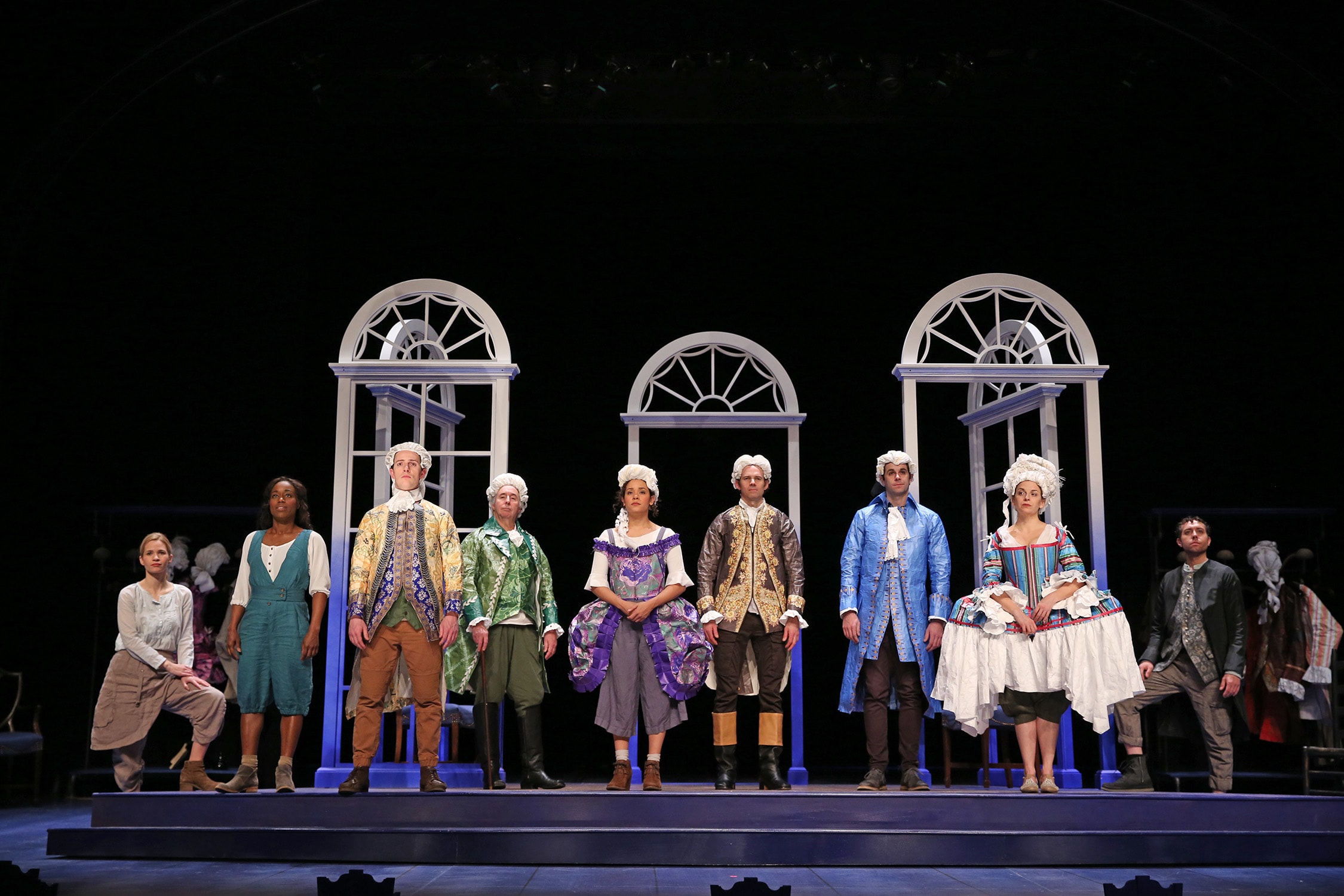A portrait of George Washington hangs in Ford’s Theatre on the presidential box where Abraham Lincoln was shot. When you stop to think about it, this is an odd disconnect. Presumably faithful to what the box looked like that fateful night, the Washington portrait viewed today makes the crime scene seem a shrine to the wrong man. It’s truthful but misleading.
This preshow reflection turned out to be apt preparation for Jefferson’s Garden, the play now on the boards at Ford’s.
READ Elizabeth Ballou’s review of Jefferson’s Garden at Ford’s Theatre
There is a curious interplay between history and interpretation in Jefferson’s Garden, Ford’s entry in the Women’s Voices Theater Festival. By its own acknowledgment, the play is a historical fiction, though it’s about something that really happened. It dramatizes the pivotal point in U.S. history when the country’s founding ideals of freedom, independence, equality, and liberty were sold down the river by white male slaveholders.

In a way, you could say, America’s history of slavery is its moral Achilles heel. And that’s just on its one foot. On the other is its other moral Achilles heel, the genocide of the people whose home this land once was. Thus for several centuries the nation has hobbled along bipedally imagining itself to be America the Beautiful, Land of the Free. And just about every national immorality since—be it the internment camps or the recent eviction of innocent immigrants—can be traced in a direct line back to those two Founding Flaws.
In Jefferson’s Garden, British playwright Timberlake Wertenbaker zeros in on one of them, the contradiction between the American revolutionaries’ espousal of freedom, equality, and inalienable rights and the hard fact that the Framers enshrined slavery in the Constitution. As the playwright said in an interview,
It seemed to me that this particular moment in American history is when the fault lines were laid, when the definition of freedom was corrupted.

And of course, the point is well taken.
But the construction and tone of the play rarely reach the gravitas that grounds the historical substance of the play. The theatrical setup is promising: nine actors don various costumes from wardrobe racks and black crates and act out various characters and scenes that tell the story of how America’s ideals were compromised. It’s as if traveling players had come to town to catch the conscience of all us anti-monarchists.
The Native American genocide is glossed over. There’s a telling mention in Wertenbaker’s script in the second act when the Framers determine that a freed slave should be quantified as three-fifths of a person, and an Indian as nothing. That’s it, zip, a blip.

The Ford’s production is first-rate. The cast is a Who’s Who of local acting talent (Christopher Block, Felicia Curry, Michael Kevin Darnall, Christopher Dinolfo, Kimberly Gilbert, Michael Halling, Thomas Keegan, Katheryn Tkel, Maggie Wilder), nearly all of whom I’ve seen do stunning work in meatier roles. Director Nataki Garrett keeps the flurry of character switches and scene shifts on a clear course at a quick clip. And the epic script is loaded with lines that have a glorious oratorical ring to them.
We won the war but now we have to shape a country.
Let the inherent rights of man be restored.
Then from Susannah, a slave:
America hasn’t yet been shaped to make me safe.
And from a candid founding father:
Privilege is always bought with someone’s freedom.
Yet I left the theater disappointed, distanced. Given the topic—how our country compromised its values to rationalize a crime against humanity—I would have expected some emotion beyond mild bemusement, engagement with characters who captured my caring, perhaps even a twinge of sorrow or shame. But compared with home-grown dramatic treatments of what America euphemizes as its race problem—Branden Jacobs-Jenkins’s An Octoroon (seen recently at Woolly), Suzan-Lori Parks’s Father Comes Home From the Wars (Round House), Young Jean Lee’s The Shipment (Forum), James Ijames’s The Most Spectacularly Lamentable Trial of Miz Martha Washington (Ally), and Steven A. Butler Jr.’s The Very Last Days of the First Colored Circus (Restoration Stage) come to mind—Wertenbaker’s Jefferson’s Garden seemed to me wan without bite or sting, high concept without rage in the gut, an exercise more than an exorcism.
Judging from enthusiastic reviews of the UK production, it played better across the pond.
Running Time: Two hours and 30 minutes, including one 15-minute intermission.
Jefferson’s Garden plays through February 8, 2018, at Ford’s Theatre, 511 10th St NW, Washington, DC. For tickets, go online.




